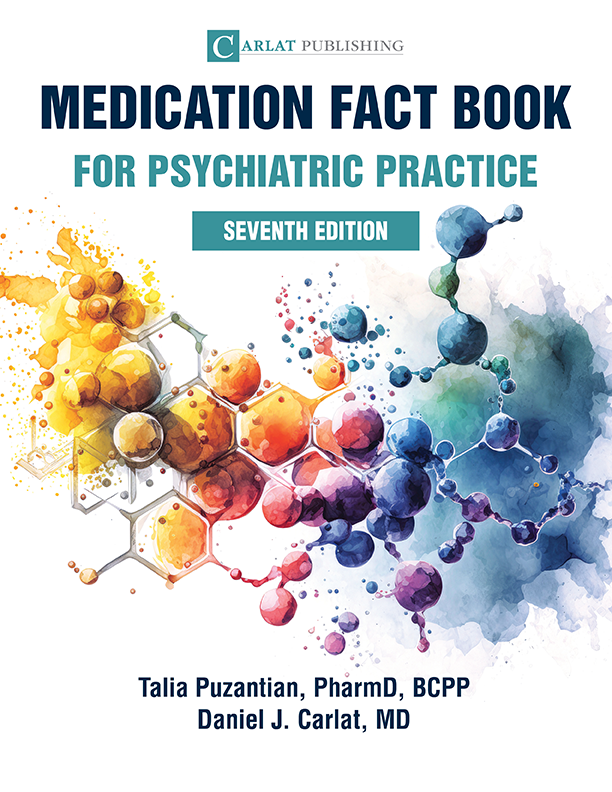Home » How Risky is Pregnancy for Women with a History of Mood Disorders?
How Risky is Pregnancy for Women with a History of Mood Disorders?
February 1, 2012
From The Carlat Psychiatry Report
Glen Spielmans, PhD
Associate professor of psychology, Metropolitan State University, St. Paul, MN
Glen Spielmans, PhD, has disclosed that he has no relevant financial or other interests in any commercial companies pertaining to this educational activity.
Subject:
PREGNANCY
Short Description:
How Risky is Pregnancy for Women with a History of Mood Disorders?
Background:
We know that the postpartum period is a risky time for women who have a history of depression, especially if they experienced postpartum depression in the past. But several questions about mood and pregnancy are still unanswered. Is pregnancy itself somehow protective against depression? Are women with a history of bipolar disorder at a much higher risk of postpartum depression than women with a history of unipolar depression? Researchers recently set out to answer these questions in a retrospective study of clinical data over a thirty year period.
Researchers studied 2,252 pregnancies in the period from 1980 to 2010 in centers in two Italian cities and Boston, Mass. Women included in the study had DSM-III or DSM-IV diagnoses of bipolar I, bipolar II, or recurrent major depressive disorder, and they were all receiving psychiatric treatment, often with medications.
Among women with bipolar disorder, 23% had “illness episodes” (defined as either a depressive, manic, or severe anxiety episode; the majority were depressive episodes) during pregnancy, and 52% had illness episodes postpartum (defined as up to six months after birth). The numbers were quite different among women with unipolar depression: 4.6% of these women had episodes during pregnancy vs 30% postpartum.
The most prominent risk factors predictive of a mood episode in these women were the following: younger age at onset of mood disorder; previous postpartum episode; fewer years of diagnosed illness; and having bipolar disorder rather than unipolar depressive disorder (Viguera AC et al, Am J Psychiatry 2011;168:1179–1185).
TCPR's Take:
These figures are useful in counseling our patients about their risk for mood episodes should they become pregnant. Women with bipolar disorder have the greatest risk of doing poorly during both pregnancy and during the postpartum period. Women with a history of depression may have no greater than baseline risk of depression during pregnancy, but the postpartum risk shoots up to 30%. These figures will help us guide our patients through the tricky territory of risks vs benefits of medications during pregnancy and after delivery.
General PsychiatryPREGNANCY
Short Description:
How Risky is Pregnancy for Women with a History of Mood Disorders?
Background:
We know that the postpartum period is a risky time for women who have a history of depression, especially if they experienced postpartum depression in the past. But several questions about mood and pregnancy are still unanswered. Is pregnancy itself somehow protective against depression? Are women with a history of bipolar disorder at a much higher risk of postpartum depression than women with a history of unipolar depression? Researchers recently set out to answer these questions in a retrospective study of clinical data over a thirty year period.
Researchers studied 2,252 pregnancies in the period from 1980 to 2010 in centers in two Italian cities and Boston, Mass. Women included in the study had DSM-III or DSM-IV diagnoses of bipolar I, bipolar II, or recurrent major depressive disorder, and they were all receiving psychiatric treatment, often with medications.
Among women with bipolar disorder, 23% had “illness episodes” (defined as either a depressive, manic, or severe anxiety episode; the majority were depressive episodes) during pregnancy, and 52% had illness episodes postpartum (defined as up to six months after birth). The numbers were quite different among women with unipolar depression: 4.6% of these women had episodes during pregnancy vs 30% postpartum.
The most prominent risk factors predictive of a mood episode in these women were the following: younger age at onset of mood disorder; previous postpartum episode; fewer years of diagnosed illness; and having bipolar disorder rather than unipolar depressive disorder (Viguera AC et al, Am J Psychiatry 2011;168:1179–1185).
TCPR's Take:
These figures are useful in counseling our patients about their risk for mood episodes should they become pregnant. Women with bipolar disorder have the greatest risk of doing poorly during both pregnancy and during the postpartum period. Women with a history of depression may have no greater than baseline risk of depression during pregnancy, but the postpartum risk shoots up to 30%. These figures will help us guide our patients through the tricky territory of risks vs benefits of medications during pregnancy and after delivery.

Issue Date: February 1, 2012
Table Of Contents
Recommended
Newsletters
Please see our Terms and Conditions, Privacy Policy, Subscription Agreement, Use of Cookies, and Hardware/Software Requirements to view our website.
© 2025 Carlat Publishing, LLC and Affiliates, All Rights Reserved.


_-The-Breakthrough-Antipsychotic-That-Could-Change-Everything.jpg?1729528747)



